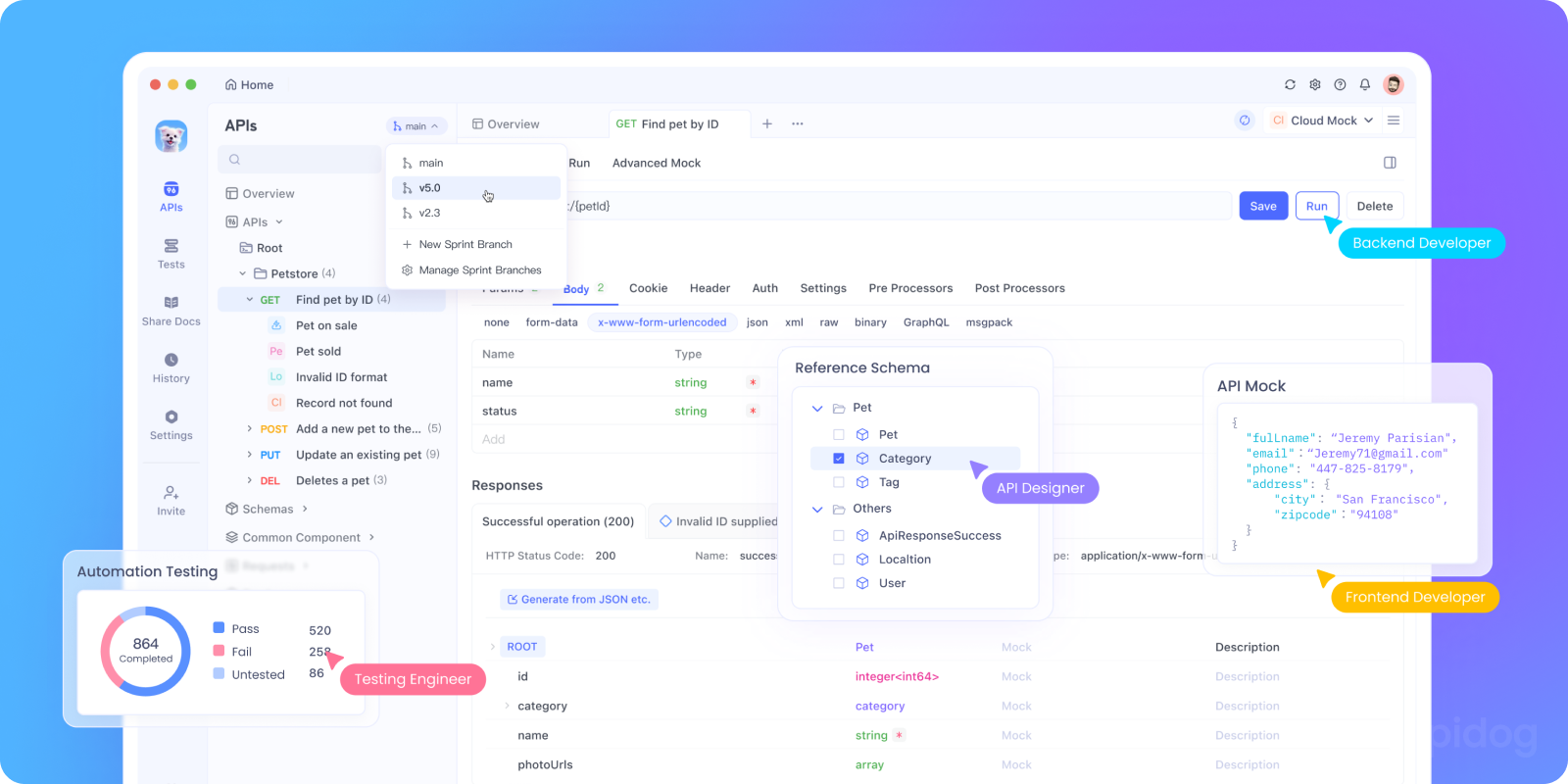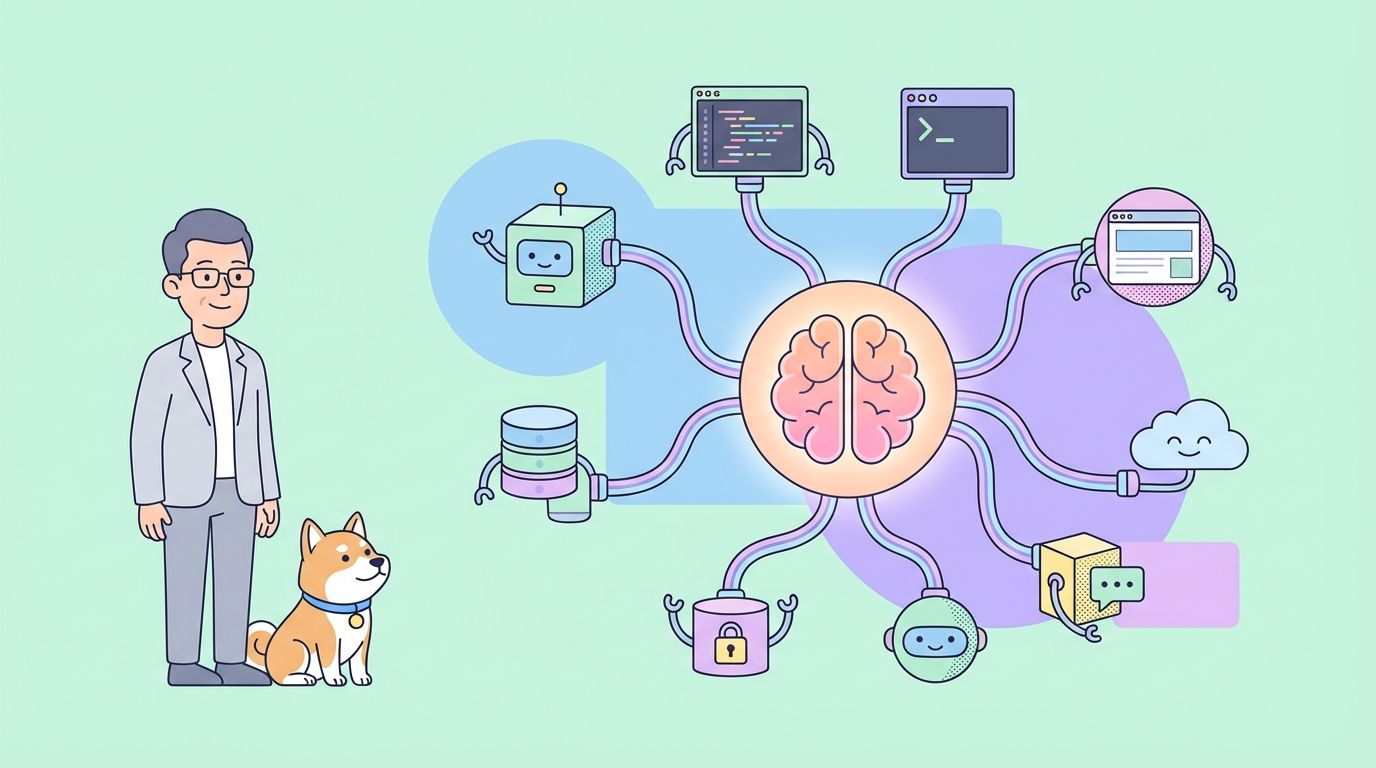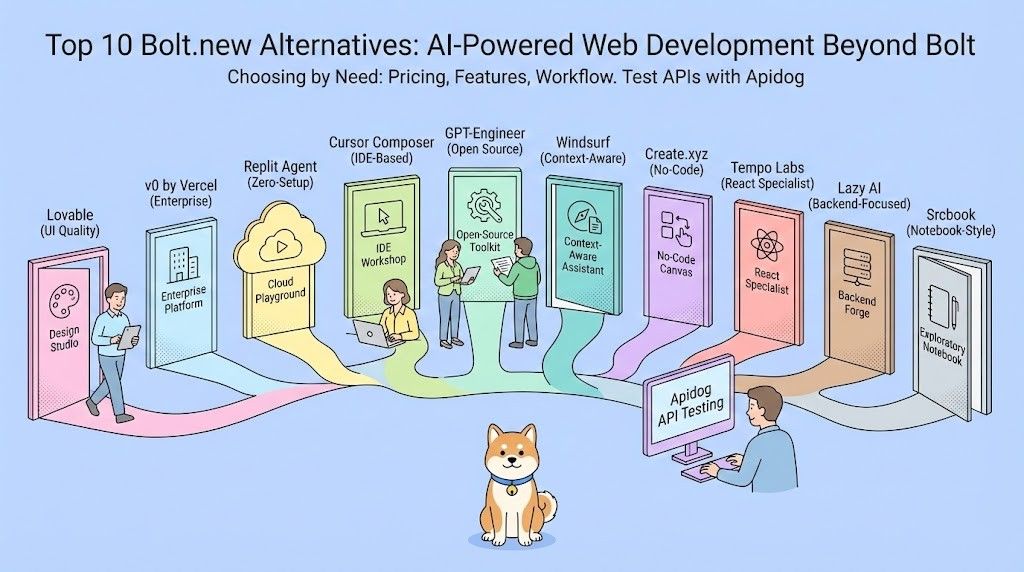In the rapidly evolving landscape of API development, the demand for offline API testing tools has surged dramatically as developers prioritize security, privacy, and uninterrupted productivity. While Postman remains a popular choice for API testing, its cloud-dependent nature and limited offline capabilities have prompted developers to seek more robust offline Postman alternatives that deliver comprehensive functionality without compromising data security.
The shift toward offline API debugging reflects growing concerns about data privacy, network reliability, and the need for secure development environments. Modern development teams require offline API testing tools that provide complete functionality while ensuring sensitive API data never leaves their controlled environment. This comprehensive guide delves into the top nine offline Postman alternatives that are transforming how developers approach API testing and debugging.
Why Choose Offline API Testing Tools Over Cloud-Based Solutions
The transition to offline API client solutions addresses critical challenges that cloud-based platforms cannot adequately resolve. Security-conscious organizations and individual developers increasingly recognize that offline API debugging tools provide superior data protection and greater control over their development workflows.
Key advantages of offline API testing include:
- Enhanced data security with zero risk of data breaches or unauthorized access
- Complete privacy control ensuring sensitive API keys and responses remain local
- Uninterrupted productivity regardless of internet connectivity issues
- Faster performance without network latency affecting testing workflows
- Compliance readiness for regulated industries requiring air-gapped environments
- Cost efficiency eliminating subscription fees and data transfer costs
Traditional cloud-based API testing platforms create potential vulnerabilities by transmitting sensitive data to external servers, storing credentials in cloud databases, and requiring constant internet connectivity. Offline API testing tools eliminate these risks while providing comprehensive functionality that often surpasses their cloud-based counterparts.
The growing adoption of offline Postman alternatives reflects a fundamental shift in how development teams approach API security and workflow optimization. Organizations handling sensitive data, working in regulated industries, or operating in environments with limited connectivity find offline solutions essential for maintaining productivity while ensuring compliance with security requirements.
1. Apidog Offline Space - The Ultimate Offline API Testing Solution

Apidog stands as the premier offline Postman alternative, offering revolutionary Offline Space functionality that transforms local API development into a comprehensive, secure, and highly productive experience.
Apidog Offline Space represents a breakthrough in offline API debugging, providing a fully-featured development environment that operates independently of internet connectivity. Unlike temporary offline modes offered by other platforms, Apidog's solution provides permanent local functionality without compromises.
Key features that make Apidog the superior choice:
- Permanent local data storage ensuring all work remains securely on your device
- Advanced debugging capabilities including comprehensive request/response analysis
- Collection management with sophisticated organization and import/export features
- Enterprise-grade security with zero data transmission to external servers
How to Access Apidog Offline Space
Getting started with Apidog Offline Space requires just a few simple steps:
- Download and install the latest version of the Apidog desktop application
- Launch the Apidog app on your local machine
- Click the
...menu in the top bar - Select "Offline Space" from the dropdown menu

Once in Offline Space, you can create, open, and import collections, debug and test endpoints, view detailed response results, and manage all local data with complete security and privacy. All data remains exclusively on your local device and is never uploaded to cloud servers, ensuring maximum security for sensitive API development projects.
2. Bruno - The Git-Integrated Offline API Client

Bruno emerges as a compelling offline API testing tool that emphasizes a local-first, file-based approach to API development. This open-source platform stores API collections as plain text files using the Bru markup language, making it ideal for developers who prioritize version control integration and offline API debugging capabilities.
Bruno's architecture eliminates cloud dependencies entirely, ensuring that all API testing and development activities occur locally without any data synchronization to external servers. This approach provides enhanced data privacy and security while maintaining full functionality for comprehensive offline API testing.
Bruno's distinctive features include:
- No cloud syncing with all data stored locally on your filesystem
- Git-native integration enabling seamless version control and collaboration
- Plain text collections using Bru markup for easy editing and sharing
- Zero account requirements eliminating login dependencies and privacy concerns
- Complete data ownership with full control over API collections and configurations
- Lightweight footprint optimized for speed and minimal resource usage
The platform's commitment to offline-first design makes it particularly suitable for teams working in secure environments or those requiring complete control over their API testing data. Bruno's integration with Git workflows enables effective team collaboration while maintaining the security benefits of local-only operation.
3. Hoppscotch - The Versatile Offline API Debugging Platform

Hoppscotch provides a unique approach to offline API testing through its Progressive Web App (PWA) functionality and self-hosting capabilities. This lightweight, open-source platform offers multiple deployment options that cater to different offline requirements while maintaining comprehensive API testing functionality.
The platform's PWA design enables complete offline operation after the initial load, caching the entire application in your browser for subsequent offline use. Additionally, Hoppscotch's desktop application and self-hosting options provide robust offline API debugging capabilities for organizations requiring enhanced security and control.
Hoppscotch's offline capabilities include:
- Progressive Web App functionality enabling browser-based offline operation
- Native desktop application providing integrated offline API testing
- Self-hosting options for complete organizational control and security
- Local API testing specifically designed for offline development environments
- Lightweight architecture optimized for performance and resource efficiency
- Open-source transparency allowing customization and security auditing
For organizations requiring offline API testing tools with flexible deployment options, Hoppscotch provides an excellent balance of functionality, security, and ease of use. Its ability to operate in various offline configurations makes it suitable for diverse development environments and security requirements.
4. Insomnia - Professional Offline API Client with Local Vault
Insomnia offers robust offline API testing capabilities through its Scratch Pad and Local Vault project options. This professional-grade platform provides comprehensive offline functionality while maintaining the sophisticated features that enterprise development teams require for complex API testing scenarios.
Insomnia's offline approach centers on local data storage options that ensure sensitive API information remains on your device while providing full access to the platform's advanced testing and debugging capabilities. The Local Vault feature specifically addresses the needs of security-conscious developers requiring offline API debugging tools.
Insomnia's offline features include:
- Scratch Pad functionality for completely local project storage
- Local Vault projects ensuring all data remains on your machine
- Comprehensive protocol support including REST, GraphQL, and gRPC
- Advanced environment management for complex testing scenarios
- Plugin extensibility allowing customization for specific requirements
- Professional interface designed for enterprise development workflows
The platform's ability to maintain full functionality while operating offline makes it an excellent choice for teams requiring professional-grade offline API testing tools without compromising on features or security.
5. Command-Line Offline API Testing Tools
For developers who prefer command-line interfaces, several powerful offline API debugging tools provide lightweight, efficient solutions for API testing without graphical overhead. These tools excel in automated testing scenarios, CI/CD integration, and environments where minimal resource usage is critical.
HTTPie - Advanced Command-Line API Testing

HTTPie offers sophisticated offline API testing capabilities through its command-line interface and offline-first GUI applications. The platform's --offline flag enables request construction and validation without network transmission, making it ideal for debugging and testing scenarios.
HTTPie's offline capabilities:
- Offline request construction using the
--offlineflag - Local data persistence in GUI versions for uninterrupted workflows
- Automatic sync resumption when connectivity is restored
- Intuitive syntax for rapid API testing and debugging
cURL - The Classic Offline API Tool

cURL remains the foundational offline API client for developers requiring reliable, lightweight API testing capabilities. While primarily designed for network operations, cURL's versatility enables effective offline testing through local server interaction and file manipulation.
cURL's offline applications:
- Local server testing for development environment validation
- File-based operations for offline data processing
- Script integration for automated testing workflows
- Universal availability across all operating systems and environments
6. IDE-Integrated Offline API Testing Solutions
Modern development environments increasingly incorporate offline API testing tools directly into popular IDEs, providing seamless integration with existing development workflows while maintaining complete offline functionality.
Thunder Client - VS Code's Offline API Testing Extension

Thunder Client transforms Visual Studio Code into a powerful offline API debugging environment through its lightweight extension architecture. This solution provides comprehensive API testing capabilities without requiring separate applications or cloud dependencies.
Thunder Client's offline features:
- Local storage integration keeping all data within VS Code
- Offline request handling with cached data utilization
- Premium offline activation for air-gapped environments
- IDE integration providing seamless development workflow
REST Client - File-Based API Testing in VS Code

REST Client enables offline API testing through .http files that can be executed directly within VS Code. This approach provides version-controlled API testing with complete offline functionality.
REST Client's advantages:
- File-based request definitions enabling version control integration
- Complete offline operation after initial installation
- No external dependencies for core functionality
- Collaborative testing through shared
.httpfiles
Conclusion: Choosing Your Ideal Offline API Testing Solution
The landscape of offline Postman alternatives offers diverse solutions catering to different development needs, security requirements, and workflow preferences. From comprehensive platforms like Apidog Offline Space to lightweight command-line tools, each solution provides unique advantages for offline API testing and debugging.
Apidog Offline Space emerges as the superior choice for teams requiring comprehensive offline API debugging tools with enterprise-grade security and full-featured functionality. Its permanent local storage, advanced debugging capabilities, and seamless offline operation make it the ideal solution for professional development environments prioritizing security and productivity.
For developers seeking specialized solutions, Bruno's Git integration, Hoppscotch's PWA flexibility, and Insomnia's professional features provide excellent alternatives. Command-line enthusiasts will find HTTPie and cURL invaluable for automated testing and lightweight operations, while IDE-integrated solutions like Thunder Client and REST Client offer seamless workflow integration.
The choice of offline API testing tools ultimately depends on your specific security requirements, workflow preferences, and feature needs. However, for teams serious about comprehensive offline API development with maximum security and functionality, Apidog Offline Space provides the complete solution that transforms offline limitations into competitive advantages.
Ready to revolutionize your offline API testing workflow? Experience the power of Apidog Offline Space and discover why it's the preferred choice for security-conscious developers worldwide. Download Apidog today and unlock the full potential of secure, offline API development.



